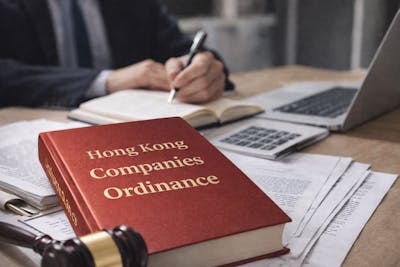Stamp duty is a tax on property and stock transactions, it applies to buying, selling, and renting property, as well as stock transfers in Hong Kong.
There are four main types of property stamp duty, these include Ad Valorem Stamp Duty (AVD), Buyer’s Stamp Duty (BSD), Special Stamp Duty (SSD), and Stamp Duty for Tenancy Agreements, each with different rules based on the transaction type and buyer status.
Stamp duty rates vary based on transaction type, the tax amount depends on factors like the property value, ownership period, and whether the buyer is a Hong Kong Permanent Resident (HKPR).
Stamping can be done online or in person. Buyers and sellers can pay stamp duty electronically (e-stamping) or visit the Stamp Office to get a stamp certificate or a stamped document.
Buying and selling property in Hong Kong can be tricky, especially when it comes to understanding the money you need to pay to the government. One important cost is called stamp duty, which is a fee for property transactions.
This guide makes stamp duty easier to understand. It explains what it is, who has to pay it, the different types, and how to pay it.
Understanding Stamp Duty in Hong Kong
Stamp duty is a tax in Hong Kong that the government charges on certain important documents. These documents help with buying, selling, or renting property (like houses or apartments) and transferring stocks in Hong Kong companies.
The Stamp Duty Ordinance (Cap. 117) is the main law that controls stamp duty. By requiring people to pay this tax on specific documents, the Hong Kong government helps keep the property market fair and safe for buyers, sellers, and investors. This law also helps keep the tax system stable.
What Are the Documents That Require Stamp Duty?
Stamp duty applies to important documents, including:
- Legal document for buying and selling property: A legal document that is needed to officially transfer the property.
- Agreement for sale and purchase: This is an early contract between the buyer and seller. It includes the price, property details, and rules both must follow.
- Lease agreements (rental contracts): This document explains the rules for renting a property, including rent amount, lease length, and responsibilities of the landlord and tenant.
- Stock transfer documents: If someone buys or receives stocks in a Hong Kong company, they must pay stamp duty on the paperwork for the transfer.
Who Pays the Stamp Duty?
The person who has to pay stamp duty depends on the type of transaction:
- Buying or selling property: Both the buyer and seller share the responsibility for paying the stamp duty.
- Rental agreements: The landlord, tenant, and anyone signing the contract must pay stamp duty.
- Stock transfers: Usually, an agent handles the payment. If no agent is involved, the buyer and seller of the stock must pay the stamp duty.
Types of Stamp Duty in Hong Kong
When buying, selling, or renting property in Hong Kong, there are four main types of stamp duty:
1. Ad Valorem Stamp Duty (AVD)
Ad Valorem Stamp Duty (AVD) is a tax that must be paid when buying or transferring property in Hong Kong. The amount depends on either the price of the property or its market value, whichever is higher.
How is AVD Calculated?
There are two ways to calculate AVD: Scale 1 and Scale 2.
- Before 2016, scale 1 had two parts:
- Part 1: For homes and apartments (residential property).
- Part 2: For shops, offices, or other buildings (non-residential property).
- After 2016: The government combined both parts into a single Scale 1 with higher rates.
Important: As of February 28, 2024, Hong Kong changed the rules. There is no more difference between residential and non-residential properties. It doesn’t matter if the buyer is a Hong Kong permanent resident, a non-resident, or a company. Everyone now follows Scale 2 rates for AVD.
Who Has to Pay Scale 1 Stamp Duty?
Scale 1 stamp duty applies to residential property sales after November 5, 2016, unless the sale agreement was signed before that date.
If a Hong Kong Permanent Resident (HKPR) is buying their first home, they don’t have to pay Scale 1 stamp duty. But if they buy more than one home at the same time, Scale 1 will still apply.
Who Has to Pay Scale 2 Stamp Duty?
Scale 2 stamp duty applies in these situations:
- For non-residential property (like offices or shops): It applies to any sale agreement signed on or after November 26, 2020.
- For residential property (like houses or apartments):
- It applies when a Hong Kong Permanent Resident (HKPR) buys one home and doesn’t own any other homes in Hong Kong at the time.
- It also applies in some special cases set by the government.
Stamp Duty Rates
Scale 1 Rates (For Residential Property Sales)
- November 5, 2016 – October 24, 2023: 15% of the property's price or value (whichever is higher).
- On or after October 25, 2023: 7.5% of the property's price or value (whichever is higher).
Scale 2 Rates (For First-Time Buyers & Non-Residential Sales)
| Property Value | Stamp Duty Rate |
|---|---|
| Up to $3,000,000 | $100 |
| $3,000,001 – $3,528,240 | $100 + 10% of the amount over $3,000,000 |
| $3,528,241 – $4,500,000 | 1.5% |
| $4,500,001 – $4,935,480 | $67,000 + 10% of the amount over $4,500,000 |
| $4,935,481 – $6,000,000 | 2.25% |
| $6,000,001 – $6,642,860 | $135,000 + 10% of the amount over $6,000,000 |
| $6,642,861 – $9,000,000 | 3% |
| $9,000,001 – $10,080,000 | $270,000 + 10% of the amount over $9,000,000 |
| $10,080,001 – $20,000,000 | 3.75% |
| $20,000,001 – $21,739,120 | $750,000 + 10% of the amount over $20,000,000 |
| $21,739,121 and above | 4.25% |
This means that the higher the property value, the higher the stamp duty you have to pay.
Who Pays the Ad Valorem Stamp Duty (AVD)?
The seller and the buyer must pay AVD equally, whether it's based on Scale 1 or Scale 2 rates. If a buyer claimed to be a Hong Kong Permanent Resident (HKPR) without owning other homes to get the lower Scale 2 rate but was later found to be wrong, only the buyer has to pay the extra amount that would have been charged under Scale 1.
Who Doesn’t Have to Pay AVD?
Some situations do not require AVD payment, including:
- Nominating a close relative (even if they are not an HKPR) who does not own any other homes in Hong Kong.
- Transferring property to someone who inherits it after the owner has passed away (as stated in a will or law).
- When a company transfers property to another company that is closely related.
- If the Hong Kong government is involved in the property transfer.
- If a charity (that doesn’t have to pay taxes) receives the property as a gift.
2. Buyer’s Stamp Duty (BSD)
Besides Ad Valorem Stamp Duty (AVD), buyers may also have to pay Buyer’s Stamp Duty (BSD) when purchasing a home.
- BSD applies to buyers who are NOT Hong Kong Permanent Residents (non-HKPRs).
- It was introduced in 2012 to help control property prices and manage the impact of foreign buyers in the Hong Kong housing market.
Who Has to Pay BSD?
Unless there is an exemption, BSD applies to any sale or transfer of a home that was signed on or after October 27, 2012. It is charged in addition to AVD and Special Stamp Duty (SSD), if applicable.
BSD is a fixed percentage of the home’s purchase price or market value (whichever is higher):
- 15% BSD: For non-HKPR buyers who signed a purchase agreement between October 27, 2012, and October 24, 2023.
- 7.5% BSD: For non-HKPR buyers who signed a purchase agreement on or after October 25, 2023.
These changes were made by the Hong Kong government to adjust to housing market conditions and help keep homes affordable.
Who Doesn’t Have to Pay BSD?
BSD does not apply if the buyer is a Hong Kong Permanent Resident (HKPR) buying the property for themselves. BSD is also not required in these situations:
- An HKPR buys a home with a close relative who is NOT an HKPR (as long as both are buying for themselves).
- A home is transferred to a close relative who is NOT an HKPR (as long as they are receiving it for themselves).
- A close relative (who is not an HKPR) is nominated to take ownership of a home instead of the original buyer.
- Adding or removing a close relative’s name (who is not an HKPR) from a property agreement.
- The court orders the transfer of a home in a legal case.
- A bank or lender takes ownership of a mortgaged home because the owner couldn't pay the loan.
- Property is transferred between connected companies (corporate entities).
- A person replaces a home they lost under special circumstances.
- The government is involved in the sale or transfer.
- A home is given as a gift to a registered charity that doesn’t have to pay taxes.
3. Special Stamp Duty (SSD)
Special Stamp Duty (SSD) is a tax that applies when a home is sold or transferred too quickly after being bought. If a home is resold within 24 months, the seller must pay SSD. The longer the seller keeps the home, the less tax they have to pay. The goal of SSD is to stop people from buying and selling homes too fast, which can cause big changes in housing prices.
When Does SSD Apply?
SSD must be paid if:
- A home is bought, sold, or transferred.
- The seller bought the home on or after November 20, 2010.
- The home is sold within 24 months of purchase (for homes bought on or after October 25, 2023).
For homes bought on or after October 25, 2023, the SSD rates are:
- 20% tax if sold within 6 months.
- 15% tax if sold between 6–12 months.
- 10% tax if sold between 12–24 months.
Both the seller and the buyer are responsible for paying the SSD. They can decide in their sale agreement which person will pay the tax.
Who Doesn’t Have to Pay SSD?
SSD is not required in these cases:
- If a home is given to a close family member (instead of selling it).
- If a family member’s name is added or removed from a property agreement.
- If the court orders a property sale or transfer.
- If a bank or lender takes ownership of a home due to unpaid debt.
- If a home is sold after being demolished to build a new one.
- If the home was inherited (passed down after someone passed away).
- If the sale happens between related companies.
- If the property is part of a bankrupt estate or a company closing due to debt.
- If the government is involved in the sale or transfer.
- If the home is donated to a tax-free charity.
4. Stamp Duty for Tenancy Agreements
In Hong Kong, stamp duty must be paid when signing a rental agreement (also called a tenancy agreement). The amount depends on the yearly rent and the length of the lease.
- Lease for 1 year or less: 0.25% of the total rent.
- Lease for 1–3 years: 0.5% of the total rent.
- Lease for more than 3 years: 1% of the total rent.
- Extra payments (like key money or construction fees): 4.25% (same as property sale stamp duty).
- Making extra copies of the agreement: $5 per copy.
Who is Responsible for Stamping?
Once the tenant signs the rental agreement, the landlord must stamp it within 30 days. After stamping, the landlord must give the tenant a signed copy of the stamped agreement. If the landlord doesn’t return the stamped copy, the tenant can legally stop paying rent until they receive it.
Stamp Duty for Transferring Hong Kong Stock
When buying, selling, or giving away stocks in Hong Kong, you need to pay stamp duty.
If stocks are bought or sold, both the buyer and seller must sign a contract note (a legal document for the transaction).
If stocks are given as a gift (with no money exchanged), a transfer document must be prepared instead. In this case, a fixed fee of HK$5 must be paid.
How Much Stamp Duty Do You Pay?
| Type of Transaction | Stamp Duty Rate |
|---|---|
| Buying or selling stocks | 0.13% of the stock’s price (paid on both the buying and selling notes). |
| Giving stocks as a gift | HK$5 + 0.26% of the stock’s value. |
| Other types of stock transfers | HK$5. |
When Should Stamp Duty Be Paid?
Stamp duty must be paid within a certain time:
| Transaction Type | Location/Condition | Deadline to Pay Stamp Duty |
|---|---|---|
| Buying or selling property | — | Within 30 days after signing the agreement |
| Renting a property | — | Within 30 days after signing the lease |
| Buying or selling stocks | In Hong Kong | Within 2 days of the transaction |
| Outside Hong Kong | Within 30 days of the transaction | |
| Transferring stocks (not a gift) | Signed in Hong Kong | Before the signing date |
| Signed outside Hong Kong | Within 30 days after signing | |
| Giving stocks as a gift | Signed in Hong Kong | Within 7 days after signing |
| Signed outside Hong Kong | Within 30 days after signing |
How to Pay Stamp Duty and Get Stamped Documents
Conventional Stamping (In Person)
Bring the original document (like a property or stock agreement). Fill out a stamping request form and bring any supporting papers. Pay the stamp duty at the Stamp Office Counter. The Stamp Office will either stamp your document or give you a stamp certificate.
E-Stamping (Online Stamping)
Instead of going to the office, you can print a stamp certificate online. This certificate is just as valid as a stamp on the document.
Paper Application (No Original Document Needed)
For agreements and rental contracts, you can apply on paper at the Stamp Office. You don’t need to bring the original document. Once you submit the request and pay, you’ll receive a stamp certificate for the document.
Let us help you handle your business. Switch to Air Corporate today!






